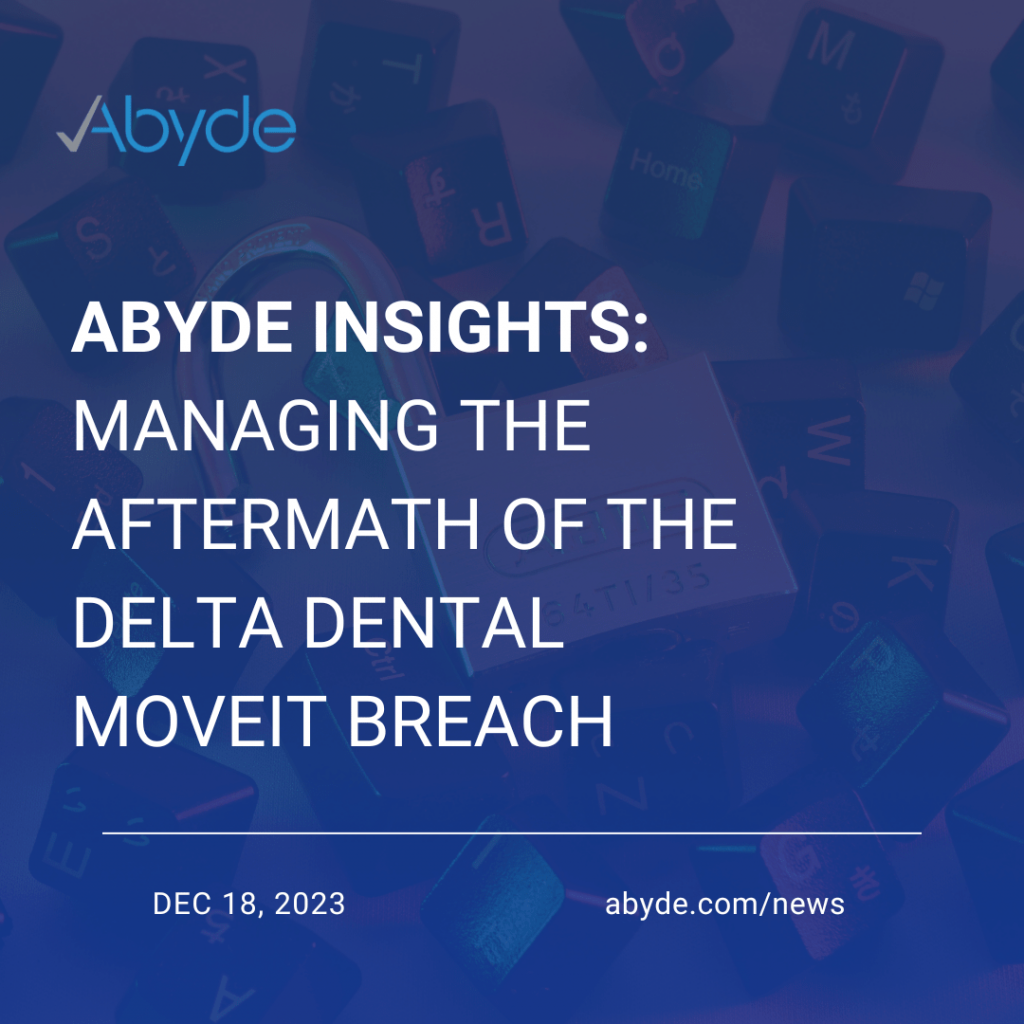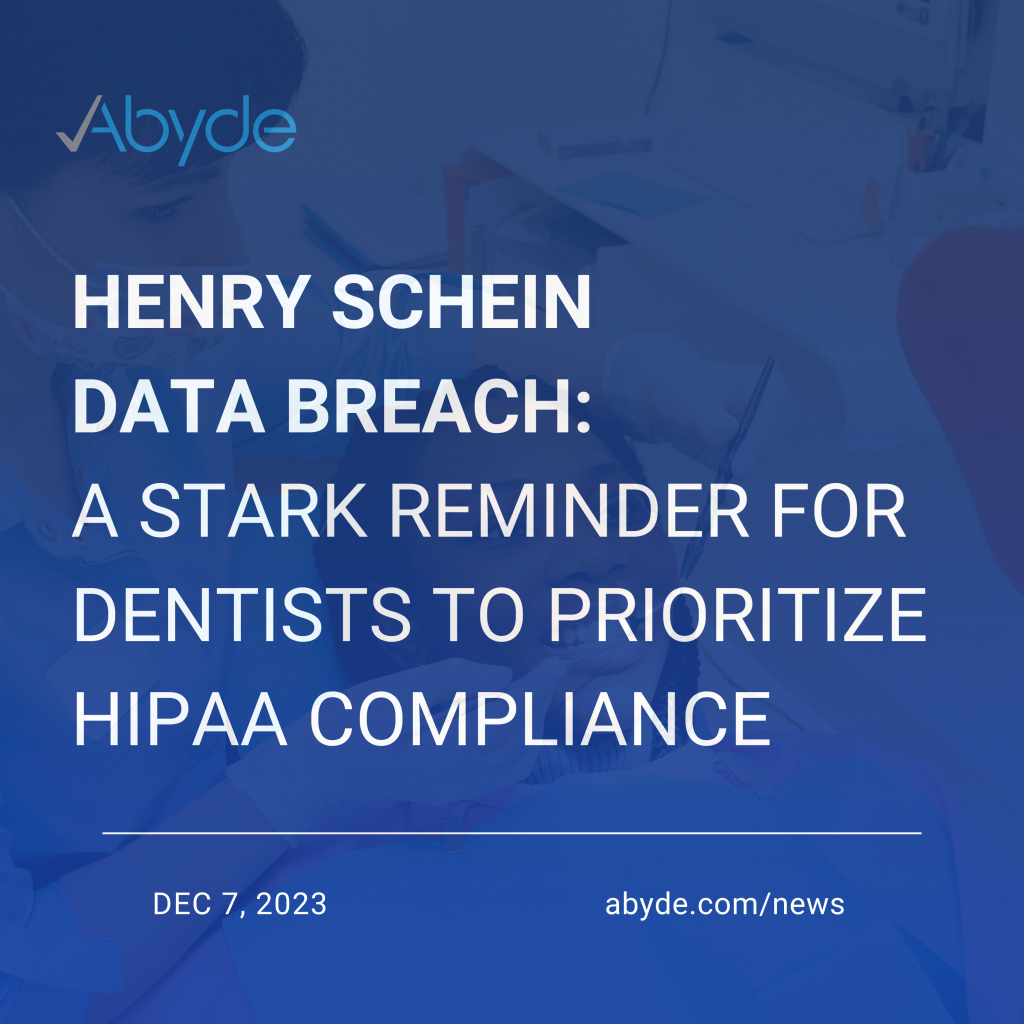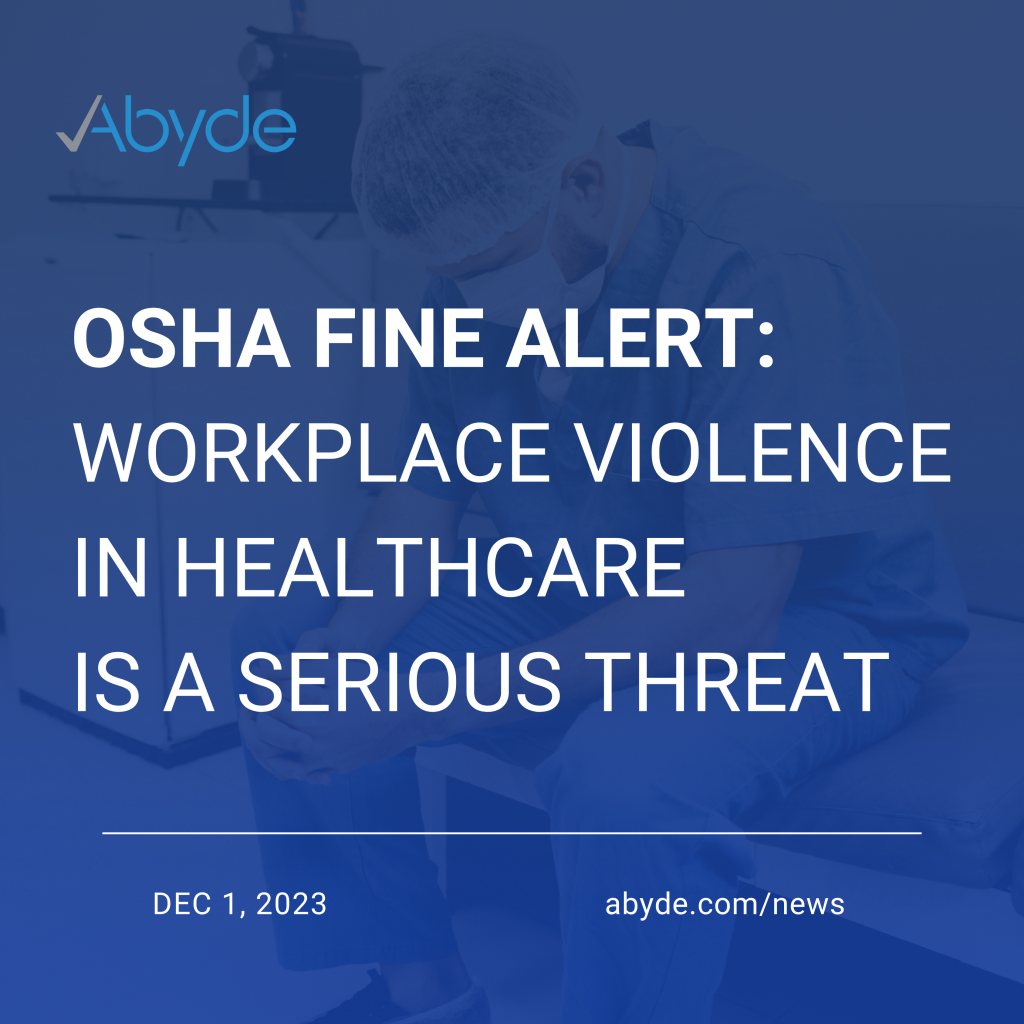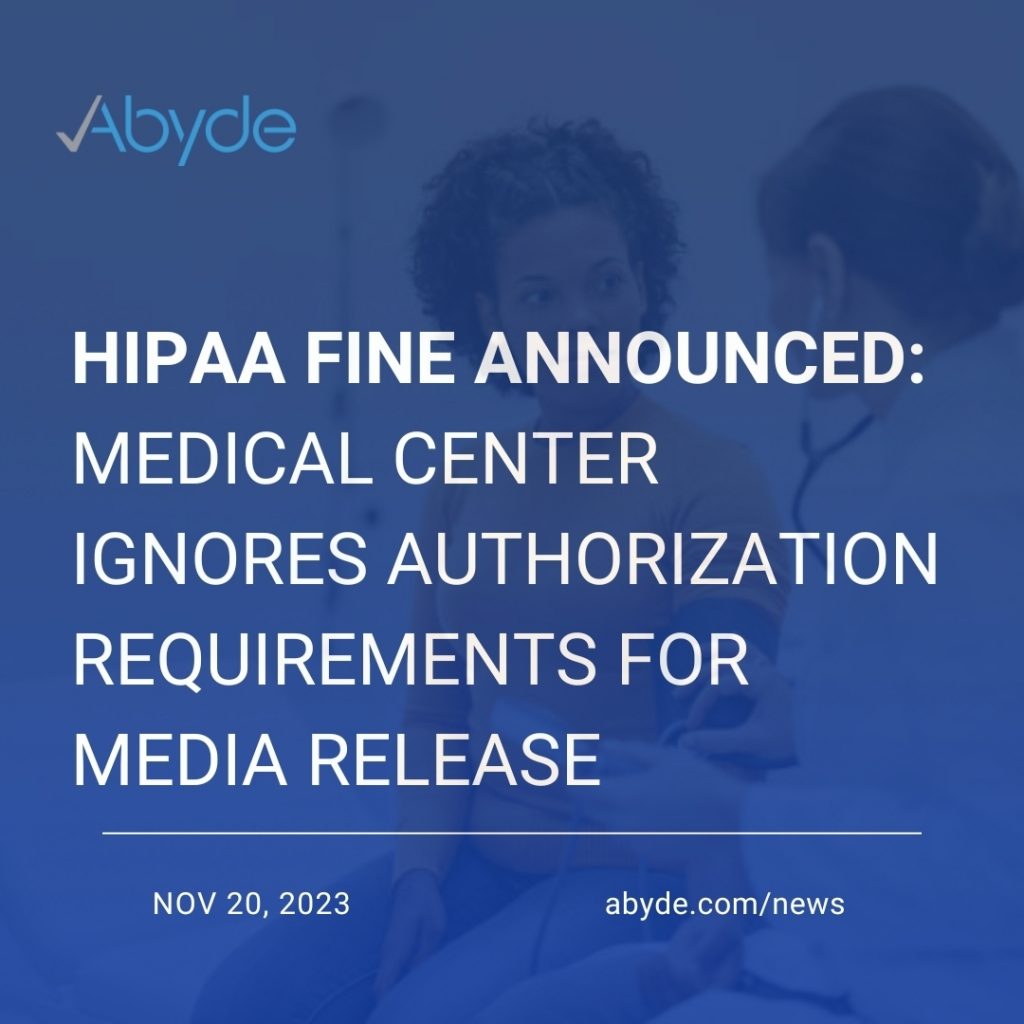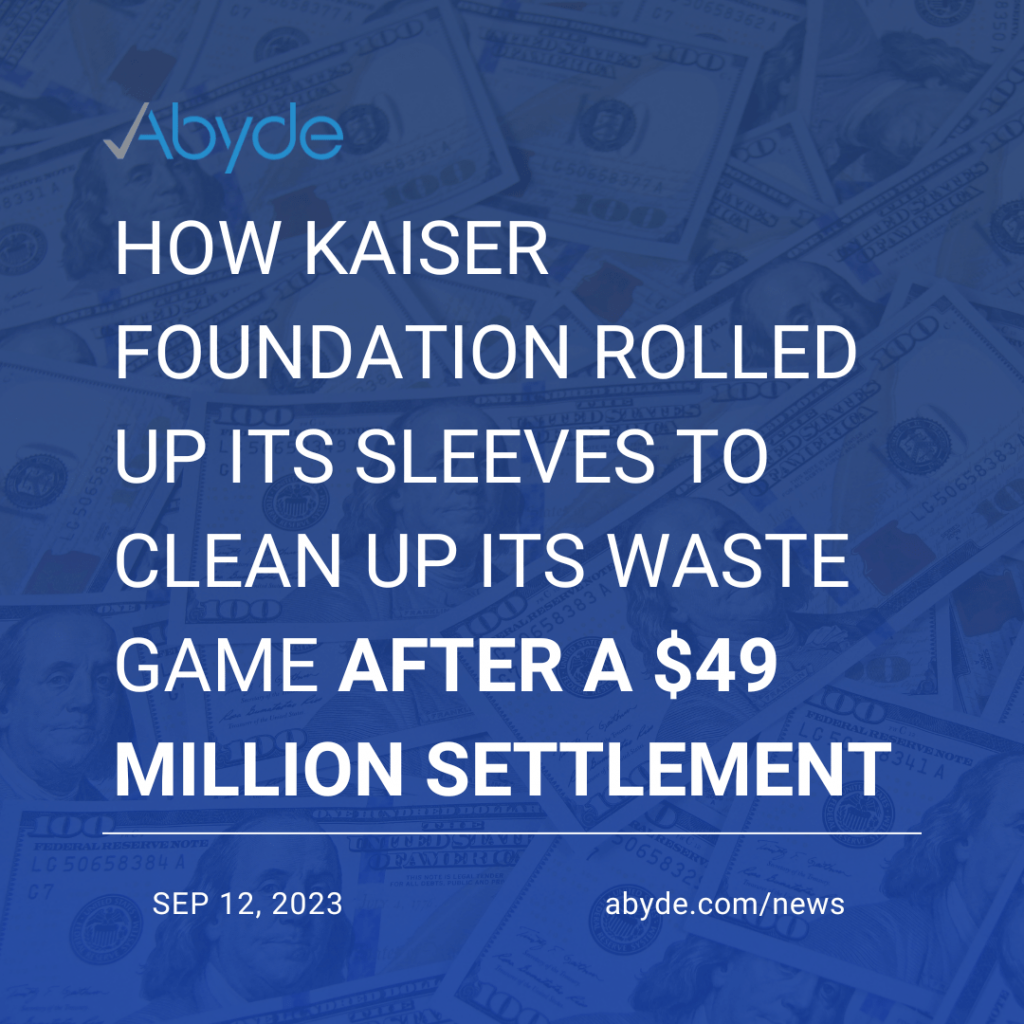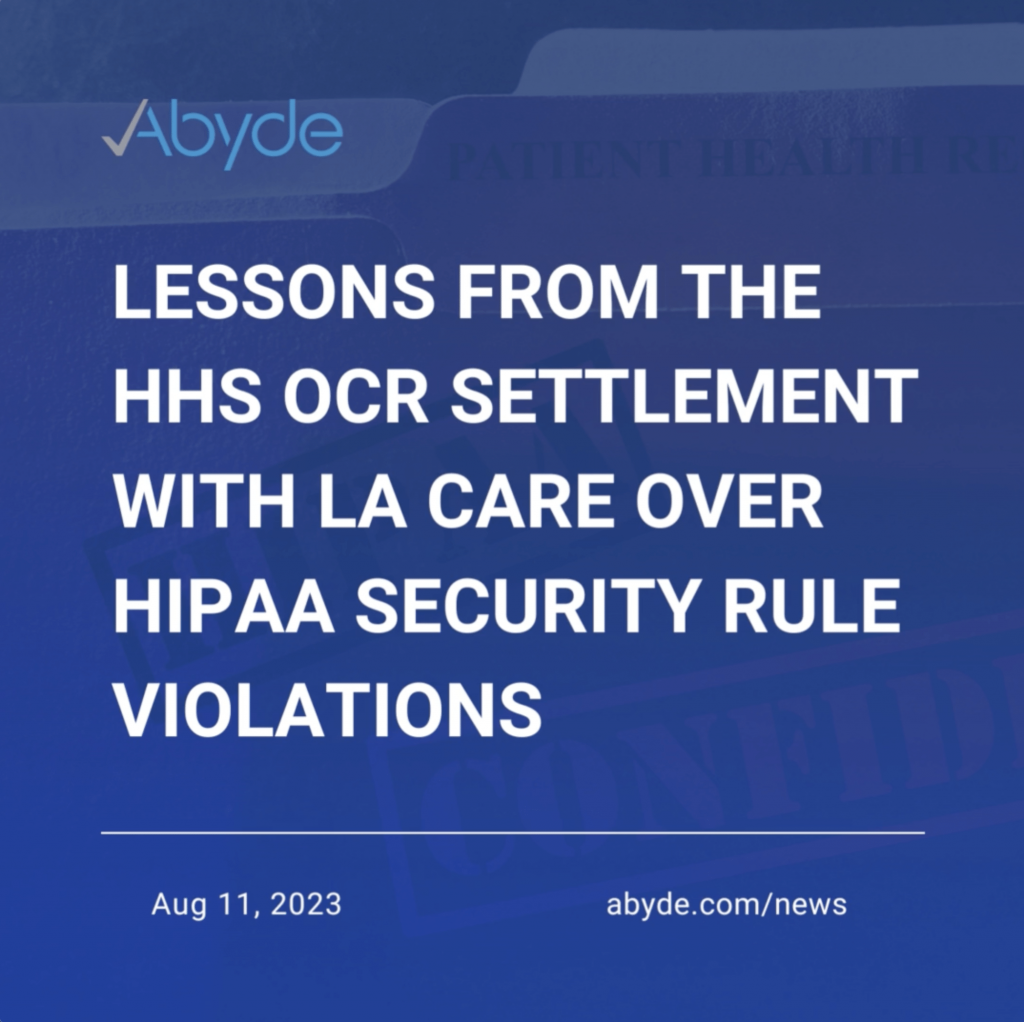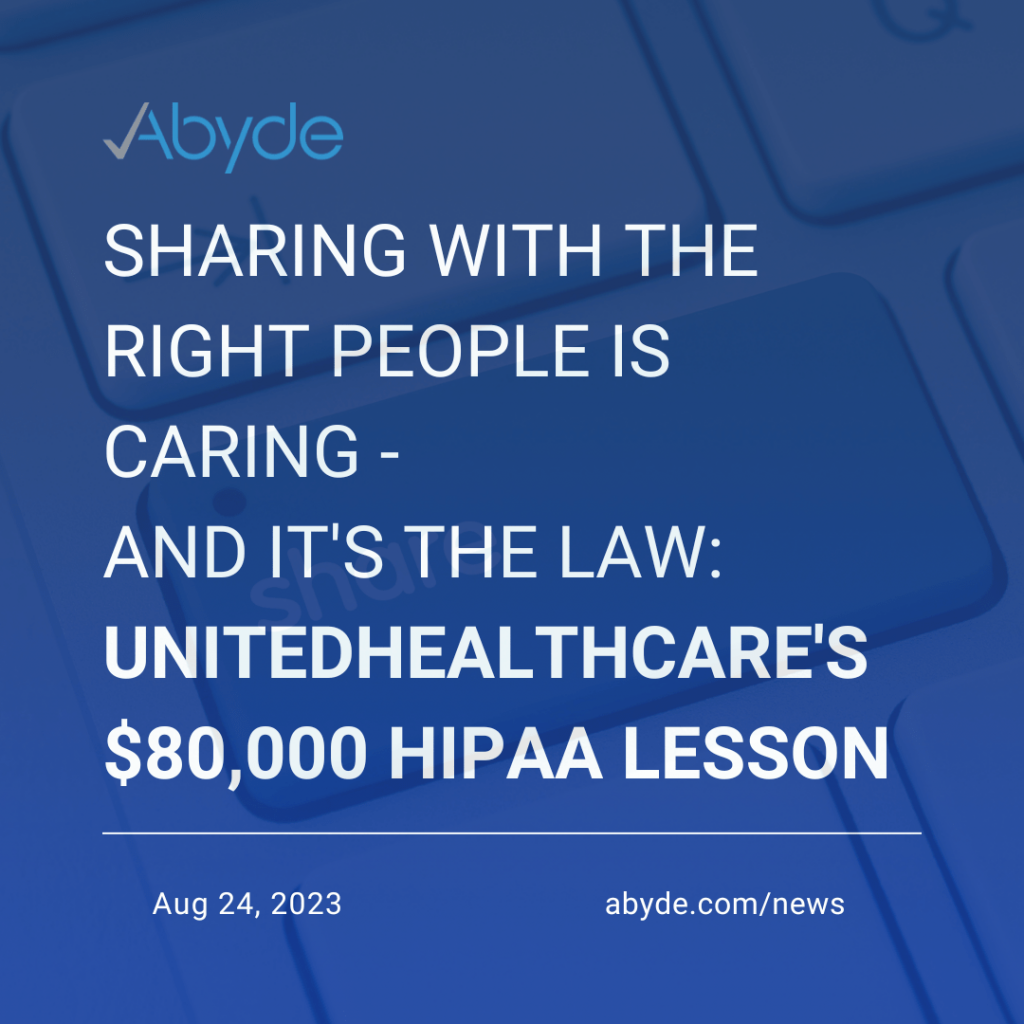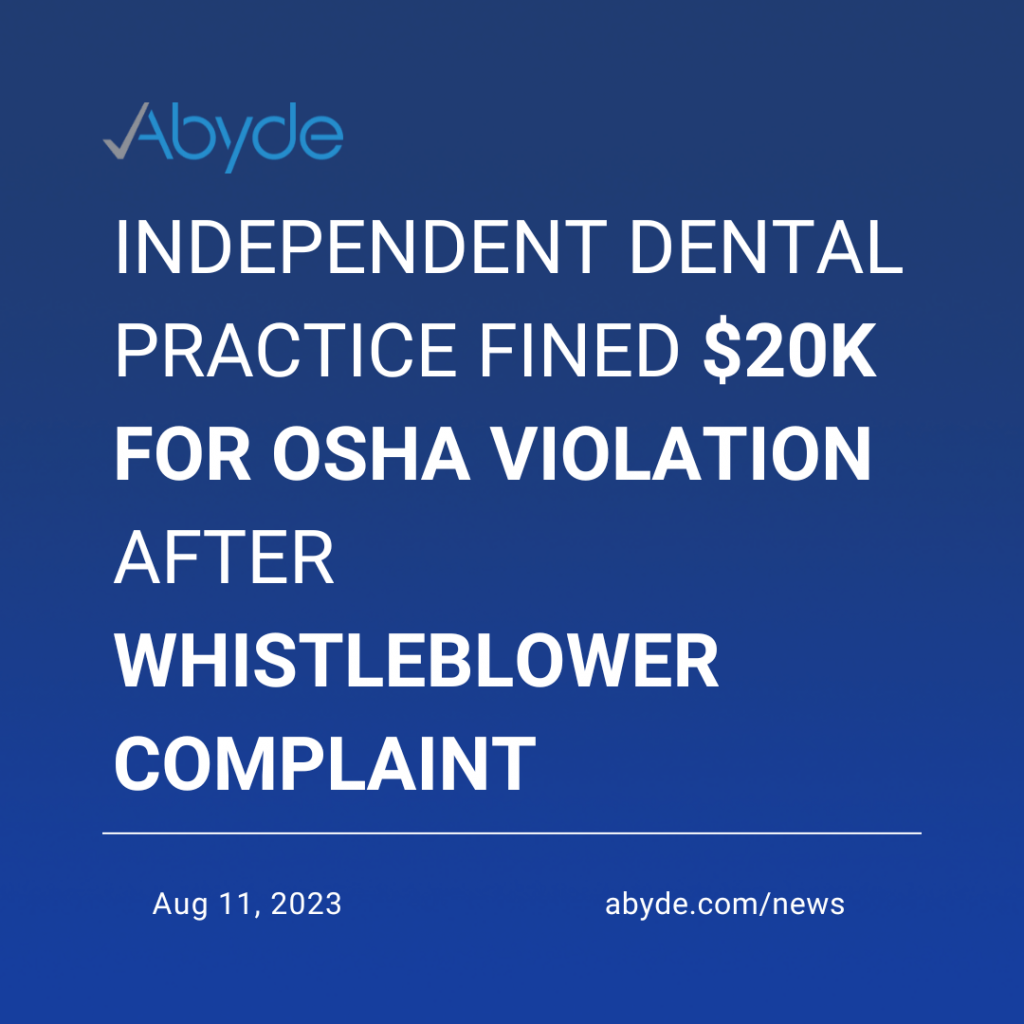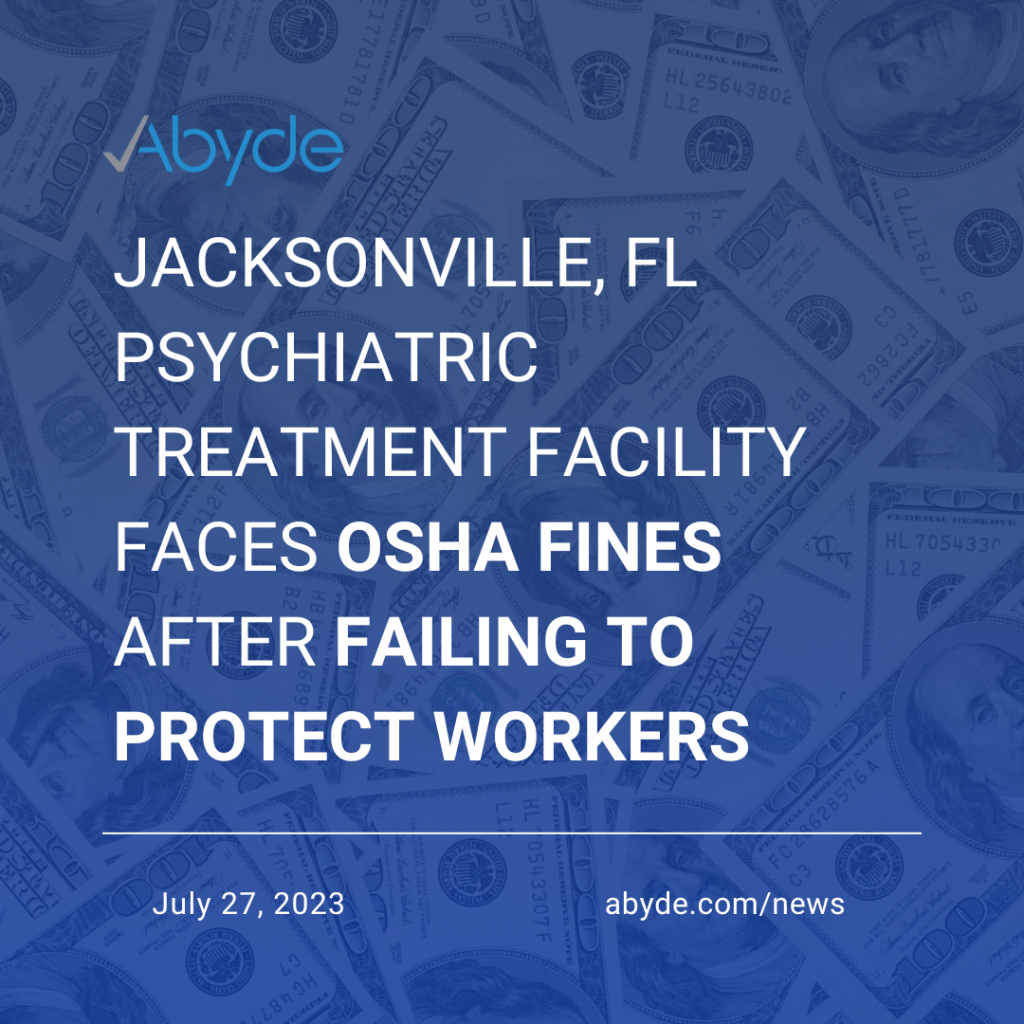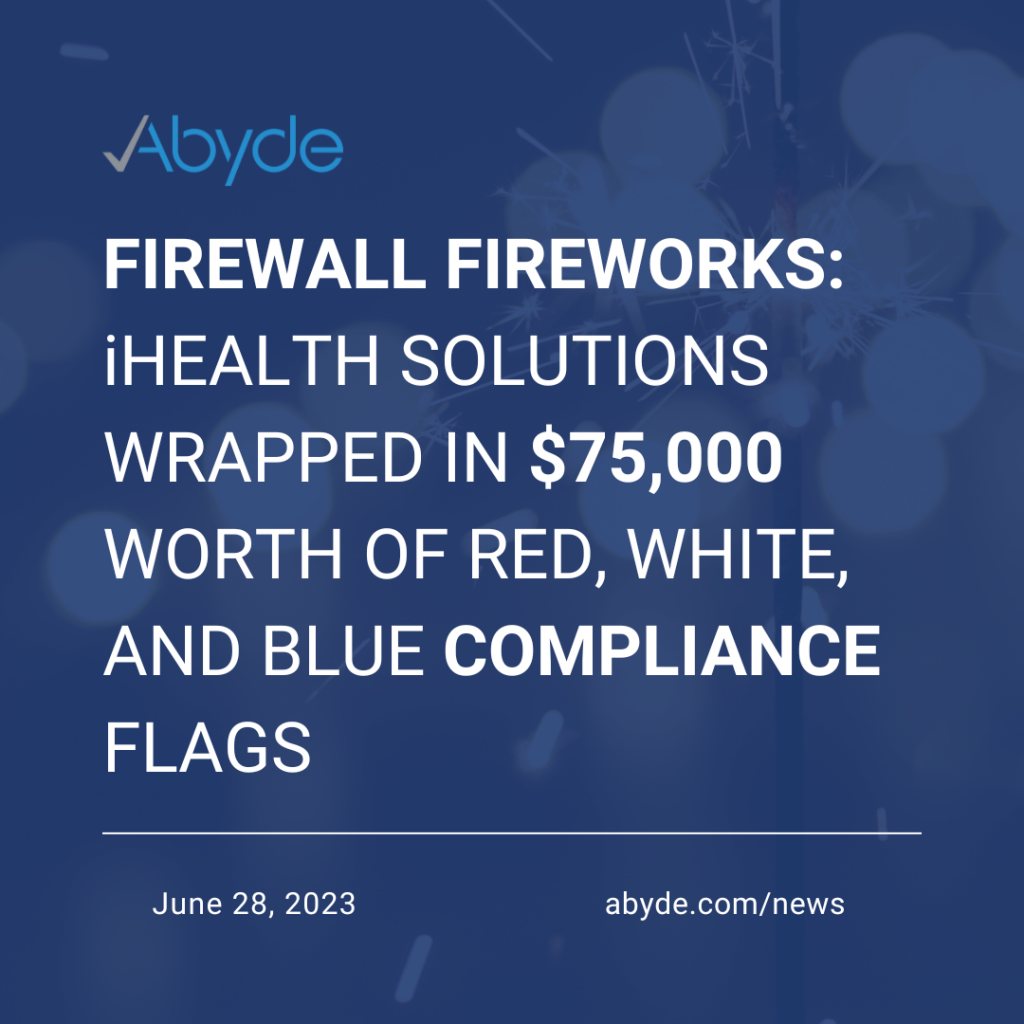December 18, 2023 In the ever-evolving landscape of cybersecurity, vigilance is key. Recently, Delta Dental of California faced the brunt of a cyberattack, highlighting the imperative need for robust security measures. At Abyde, we believe in keeping our community informed to fortify defenses against potential threats. Here’s a closer look at the Delta Dental MOVEit breach and insights on strengthening your cybersecurity posture. Understanding the Breach Delta Dental of California, an esteemed provider of dental insurance to 45 million individuals, fell victim to the Clop hacking group’s exploitation of a zero-day vulnerability in Progress Software’s MOVEit Transfer solution. This breach, affecting a staggering 6,928,932 dental plan members, underscores the critical importance of cybersecurity in safeguarding sensitive information. Timeline of Events The breach unfolded when Delta Dental identified an SQL injection vulnerability (CVE-2023-34362) in MOVEit Transfer on June 1, 2023. Despite Progress Software swiftly releasing an emergency patch on May 31, 2023, the Clop group had exploited the flaw between May 27 and May 30, 2023. The aftermath saw unauthorized access and data exfiltration from Delta Dental’s MOVEit server. Response and Analysis Delta Dental responded promptly, engaging third-party computer forensics experts to conduct a thorough analysis. The complexity of the breach required meticulous scrutiny, leading to the finalization of the affected individuals and data types on November 27, 2023. Notification letters commenced distribution on December 14, 2023. Protective Measures for Affected Individuals In an effort to mitigate the impact on affected individuals, Delta Dental has taken proactive steps. Those affected are being offered 24 months of complimentary credit monitoring and identity theft protection services. This measure aims to empower individuals to monitor and protect their personal information during this challenging time. Learning from the Incident While Delta Dental emphasized that this was a mass exploitation incident affecting numerous companies, the magnitude of the breach sets it apart. With nearly 7 million individuals affected, it stands as the third-largest healthcare MOVEit-related breach reported. HIPAA Compliance and Notification Delta Dental adhered to the HIPAA Breach Notification Rule, reporting the breach to the HHS’ Office for Civil Rights on September 6, 2023, within the stipulated 60-day timeframe. The intricate process of identifying affected individuals and data involves digital forensic and incident response providers, highlighting the complexities of incident response. At Abyde, we advocate for a proactive approach to cybersecurity and compliance. Regularly updating and patching software, conducting comprehensive risk assessments, and fostering a culture of compliance are crucial components of a resilient HIPAA compliance strategy. Abyde is here to guide you on your journey to enhanced security and privacy. Reach out to one of our experts today to learn more! Call 800.594.0883 or email info@abyde.com.
Dissecting the Henry Schein Data Breach: A Stark Reminder for Dentists to Prioritize HIPAA
December 11, 2023 In October 2023, Henry Schein, a major dental supply distributor, suffered a significant data breach. The ransomware attack compromised sensitive information belonging to both patients and dental practices, including names, addresses, Social Security numbers, and financial information. This incident serves as a stark reminder for dentists of the importance of taking data security and compliance seriously. Key Takeaways from the Henry Schein Data Breach: Mitchell Rubinstein DMD, a practicing dentist and noted cybersecurity educator in New York City is hoping this is the wakeup call that dental professionals need to start taking cybersecurity and HIPAA seriously. “An important thing to learn from the Henry Schein breach is that everyone is vulnerable. They’re a multibillion dollar healthcare corporation with far greater resources than any dental practice. If they can fall victim to a cyberattack, then so can any of us.” He went on to add, “Having a plan in place to respond to a cyberattack is just as important as having a plan to prevent one.” What dentists can do to protect their practices: “The companies we do business with accumulate a great deal of information about us,” Dr. Rubinstein stated. “If that information is compromised in a cyberattack, it can result in several layers of harm, not only to us, but to our patients as well.” Abyde: Your Partner in Cybersecurity and Compliance Abyde understands the importance of data security and compliance for dental practices. We offer a comprehensive solution designed to help protect you from data breaches and audits while also helping you ensure HIPAA compliance. Our solution includes: By taking data security and compliance seriously, dentists can help prevent data breaches, protect their patients, and avoid legal ramifications. Let’s work together to create a safer environment for everyone involved in dental care. Contact Abyde today to learn more about our HIPAA-compliant solutions and how we can help you protect your practice. Call Abyde! 800.594.0883 or Email Us info@abyde.com Additional Resources:The Department of Health and Human Services (HHS) website on HIPAA
OSHA Fine Alert: Workplace Violence in Healthcare is A Serious Threat
December 1, 2023 The recent OSHA investigation of a South Bay correctional facility highlights the ongoing problem of workplace violence in healthcare settings. The facility failed to implement proper safety protocols, resulting in a violent attack on a nurse by an inmate. This incident underscores the critical need for healthcare employers to prioritize worker safety and comply with OSHA regulations. Key Takeaways from the South Bay Incident: Abyde: Your Partner in Healthcare Compliance Abyde understands the unique challenges of healthcare organizations in ensuring worker safety and compliance. We offer a comprehensive suite of solutions to help: Protect Your Workers and Avoid Legal Ramifications Failing to prioritize workplace safety can have serious consequences for healthcare organizations, including legal action, fines, and reputational damage. By partnering with Abyde, you can proactively comply with regulations and create a safer environment for your staff. Click here to learn more about Abyde’s solutions for healthcare compliance and worker safety. Additional Resources:
HIPAA Fine Announced: Medical Center Ignores Authorization Requirements for Media Release
November 20, 2023 In recent news, the U.S. Department of Health and Human Services (HHS), Office for Civil Rights (OCR) settled a HIPAA investigation with Saint Joseph’s Medical Center over the unauthorized disclosure of COVID-19 patients’ protected health information (ePHI) to a national media outlet. This incident underscores a critical lesson in patient privacy, prompting Abyde to emphasize the significance of obtaining patient authorization before releasing any ePHI or images. See, What Had Happened Was Saint Joseph’s Medical Center, a non-profit academic medical center in New York, faced potential violations of the Health Insurance Portability and Accountability Act of 1996 (HIPAA) Privacy Rule. The center improperly disclosed sensitive patient information to a national media outlet without obtaining the necessary written authorization from the patients, leading to a settlement with the OCR. The Importance of Patient Authorization The OCR makes it clear that patients have the right to control the disclosure of their health information. This settlement highlights the need for healthcare providers to prioritize patient authorization before releasing any ePHI or images, particularly to the media. Abyde’s Take When undergoing medical treatment in medical facilities, patients should feel assured that their healthcare providers will not disclose their personal health information to the media without obtaining proper authorization. Abyde cannot stress enough the responsibility of healthcare providers in safeguarding patient privacy. Key Takeaways: Our Final Word The settlement with Saint Joseph’s Medical Center serves as a valuable lesson for healthcare providers everywhere. Abyde remains committed to supporting practices in navigating the complexities of HIPAA compliance, with a specific emphasis on the importance of obtaining patient authorization before disclosing any ePHI or images. To see why Abyde is considered the pre-eminent HIPAA compliance solution, click here to schedule a demo.
How Kaiser Foundation Rolled Up Its Sleeves to Clean Up Its Waste Game After a $49 Million Settlement
September 12, 2023 Hey there, eco-warriors and healthcare aficionados! Buckle up because we have some intriguing news on the healthcare front that could give you both a sigh of relief and a chuckle. You know the Kaiser Foundation, right? The healthcare giant that’s practically the Beyoncé of California healthcare? Well, they recently found themselves in a bit of a trashy situation. But don’t worry, they’re taking out the trash—literally. What Went Down? Imagine a group of undercover agents not from a blockbuster film but from district attorneys’ offices in counties like San Francisco, San Mateo, and others. Their mission? Inspecting dumpsters at 16 different Kaiser facilities, which, get this, wasn’t even locked. Spoiler alert: The bins weren’t filled with outdated fashion magazines or pizza boxes; they were packed with hazardous and medical waste. We’re talking needles, batteries, and even patient records! Yup, patient records are in the trash. Not good nor compliant! The Rule Book So, some of you might be scratching your heads and thinking, “Wait, isn’t there a rule against this sort of thing?” And, oh boy, are you right! We’ve got the big acronym HIPAA (Health Insurance Portability and Accountability Act) and a handful of Californian laws like the Hazardous Waste Control Law and the Medical Waste Management Act saying, “Nah, that ain’t right!” How Kaiser is Cleaning Up Its Act Kaiser wasn’t like, “Eh, no big deal.” No, siree! They brought in third-party pros to audit over a thousand of their trash piles—now that’s some severe garbage dedication. They’ve also fine-tuned their waste disposal routines faster than you can say “recycle.” And the price for this waste fiasco? Kaiser agreed to a $49 million settlement, with a chunk of it ($37.5 million) going toward civil penalties. They also have to hire an independent auditor for future trash checks. The auditor will ensure that hazardous items and patient info aren’t having dumpster parties together. Attorney General’s Two Cents Rob Bonta, the Attorney General, chimed in to say, “The illegal disposal of hazardous and medical waste is a no-go. Kaiser, as a healthcare provider, should know better.” But he also quickly acknowledged that Kaiser didn’t just shove its head in the sand. They’ve been cooperating to get their waste management back on track. So, what’s the lesson here, folks? Maybe it’s that even giants like Kaiser can trip up, but it’s never too late to get your act together—whether it’s your personal life or your dumpsters. Because, let’s face it, nobody wants their confidential medical history ending up in a landfill next to last week’s tuna casserole. 🗑️✅ Don’t Let Compliance Be Your Blind Spot—Abyde Has Your Back! Navigating the maze of healthcare compliance can be like playing a never-ending game of Whac-A-Mole—just when you think you’ve tackled one issue, another one pops up. And let’s be honest; nobody wants to be the next headline for not properly securing their hazardous waste or protecting patient information. That’s where we come in! 🌟 Abyde specializes in HIPAA and OSHA Compliance solutions. We understand the nitty-gritty details that can keep healthcare administrators up at night, so you don’t have to. With our cutting-edge SAAS solutions, you can rest easy knowing you’re in full compliance with not just federal laws but also state-specific regulations. Our comprehensive audits and easy-to-implement changes can help you avoid dumpster dives and sticky situations like the one Kaiser found itself in. We’re more than just a service; we’re a partner who takes your compliance seriously so you can focus on what really matters—providing exceptional healthcare. So, if you’re looking for a superhero in the complex world of healthcare compliance, look no further. Abyde is the sidekick you didn’t know you needed but won’t be able to live without. Till then, keep your dumpsters clean and your patient records cleaner! 🌱🗂️✨
Lessons from the HHS OCR Settlement with LA Care Over HIPAA Security Rule Violations
September 11, 2023 In a recent episode of “Healthcare’s Most Expensive Mistakes,” LA Care, the nation’s largest publicly operated health plan, made a special guest appearance. They settled a case with the U.S. Department of Health and Human Services’ Office for Civil Rights (HHS / OCR) over potential violations of the HIPAA Security Rule. The cost? A cool $1.3 million and a multi-year “compliance babysitting” plan. Key Violations They say it is all in the details. Well, the violations that led to this hefty settlement were the ones that are overlooked so often. They included: The Importance of Proactive Measures OCR Director Melanie Fontes Rainer emphasized that it’s better to be proactive than reactive—unless you enjoy cutting million-dollar checks to the government. The OCR will be keeping a watchful eye on LA Care for three years, so let’s hope they don’t pull a “Groundhog Day” and repeat their mistakes. Corrective Actions To avoid their past mishaps, LA Care will be following a corrective action plan. Steps include: The LA Care case is a cautionary tale that even healthcare giants can stumble if they don’t take HIPAA seriously. But hey, mistakes are human; it’s how you fix them that defines you. If you’re reading this and are suddenly concerned about your organization’s compliance, you’re not alone—well, unless you’re from LA Care, in which case, hang in there! How Abyde Can Help Now, for healthcare organizations that want to avoid starring in the next episode of “Healthcare’s Most Expensive Mistakes,” meet Abyde. We’re the fairy godparent you wish you had during a compliance crisis. Our HIPAA and OSHA Compliance SAAS platform helps you sail through risk analyses, craft impeccable risk management plans, and even preps you for those scary OCR audits—making compliance as easy as pie. So, if you’re tired of the compliance nightmares and ready to sleep easy, Abyde is your dream come true. Don’t be the next LA Care; be the carefree healthcare provider everyone envies. Embrace peace of mind and secure your organization’s future with Abyde today. Because in the world of healthcare, it’s better to be safe, compliant, and a little bit cheeky than sorry.
Sharing with the Right People is Caring – And It’s the Law: UnitedHealthcare’s $80,000 HIPAA Lesson
August 24, 2023 “Sharing is caring” – an age-old mantra. But in healthcare, it’s all about sharing information with the right people. The recent settlement between the Office for Civil Rights (OCR) at the U.S. Department of Health and Human Services (HHS) and UnitedHealthcare Insurance Company (UHIC) serves as a compelling narrative for this. The Tale of a Delayed Share March 2021 saw a curveball thrown at UHIC when OCR flagged a concerning delay. An individual’s simple request for their medical records, made in January, wasn’t fulfilled until July. The tardiness wasn’t a first for UHIC – it was their third offense. UHIC’s oversight cost them $80,000, a commitment to make amends and a year under the OCR’s microscope. HIPAA makes it loud and clear: Patients have a fundamental right to timely access to their health information. Sharing Timely is Both Caring and Complying Melanie Fontes Rainer, the face of OCR, pointed out that delays aren’t just unkind – they’re unlawful regarding members’ health data. And the cost isn’t just monetary; reputations are at stake, too. Abyde’s Sharing Compass Navigating the maze of HIPAA compliance can be tricky, but Abyde’s HIPAA and OSHA Compliance Software offers a lifeline. Here’s what Abyde brings to the table: Your Path to Smart Sharing UHIC’s story is a powerful reminder of the gravity of healthcare privacy laws. Instead of being the next UHIC, make “Sharing with the right people is caring – and the law” your motto. Let Abyde guide you in this endeavor. Kickstart your journey to guaranteed compliance. Set up a demo with Abyde now. Our mavens will craft a plan tailored to your organization, ensuring you comply and lead in this ever-evolving regulatory environment.
Brushing Up on Whistleblower Rights – No Fillings Required!
August 11, 2023 Navigating the world of workplace safety can sometimes feel like scheduling a dental appointment – necessary but often anxiety-inducing. But just as we prefer our dental check-ups to be cavity-free, our workplace environments should be risk-free. A recent court judgment highlighted that when it comes to voicing concerns, it’s not just about flossing daily but standing up for safety! In Peoria, Dr. Monzer K. Al-Dadah probably thought he was pulling a fast one (and we’re not talking about teeth) when he terminated a dental assistant for raising concerns about coronavirus infection risks. This wasn’t just any dental assistant, mind you, but one with more than two decades of service – perhaps old enough to remember the pre-electric toothbrush days! When Dr. Al-Dadah learned of an anonymous safety complaint to OSHA in March 2020, he tried to ‘drill’ down to identify the whistleblower. Unsuccessful in his detective efforts, he chose to let go of the dental assistant. The assistant filed a complaint with OSHA, showing the resilience of a tooth that refuses to get extracted. Fast forward a bit, and OSHA, acting like the dental hygienist who discovers you’ve been skipping your nightly brush, wasn’t too pleased. They determined a clear breach of whistleblower protections. This led to Dr. Al-Dadah being ordered to cough up $20,000 in back wages – that’s a lot of dental floss! Denise Keller, the OSHA Assistant Regional Administrator in Chicago, summed it up with a reminder that workers should feel as confident voicing concerns about safety as they do showing off those pearly whites after a cleaning, “Employees must be able to exercise their legal rights regarding workplace safety freely and without fear of retaliation.” All in all, just as we’re advised not to be lax with our oral hygiene, it’s clear we shouldn’t be lax about workplace safety either. For those curious about whistleblower protections, OSHA’s Whistleblower Protection Programs webpage is as enlightening as that little mirror your dentist uses. Here at Abyde, while we can’t help with plaque, we’re all in for promoting workplace safety and transparency with a dose of humor! Remember, when it comes to safety, always brush and floss (or voice concerns) daily!
Jacksonville, FL Psychiatric Treatment Facility Faces OSHA Fines After Failing to Protect Workers
July 27, 2023 In a recent investigation, the U.S. Department of Labor’s Occupational Safety and Health Administration (OSHA) discovered alarming safety lapses at a psychiatric health and substance disorder facility in Jacksonville, Florida. The facility, operating as River Point Behavioral Health, failed to implement necessary safety procedures, exposing its workers to serious risks and injuries. One incident involved a patient attacking a registered nurse, highlighting the urgent need for improved workplace safety measures. Workplace Violence Plagues Healthcare Workers The incident occurred in January 2023, when a registered nurse employed by UHS of Delaware Inc. and TBJ Behavioral Center LLC was working on reports in a staff-only workspace. Tragically, a patient gained unauthorized access to the area and physically assaulted the nurse, delivering blows to the face and head, resulting in a loss of consciousness and lacerations. This unfortunate incident highlights the growing concern about workplace violence faced by healthcare workers nationwide. OSHA’s Findings and Consequences Following the investigation, OSHA cited River Point Behavioral Health for a serious violation, holding them responsible for failing to provide a safe workplace free from recognized health and safety hazards. The agency proposed penalties amounting to $15,625. OSHA’s Area Office Director, Scott Tisdale, emphasized the importance of employers taking swift action to prevent such incidents, ensuring their employees’ physical well-being and peace of mind. A Pattern of Neglect This investigation is not an isolated incident for UHS of Delaware Inc. Since 2017, OSHA has looked into three other Florida facilities affiliated with the company due to similar complaints related to workplace violence. The pattern of neglect raises concerns about the company’s commitment to employee safety and the urgent need for comprehensive reforms. Creating Safer Work Environments Workplace violence is a pressing issue, particularly within the healthcare sector. Employers must take proactive steps to prevent and address such hazards to ensure the safety of their staff. Safety protocols, proper training, and secure workspaces are just a few measures that can significantly reduce the risks healthcare workers face on a daily basis. UHS Inc.’s Role and Responsibility River Point Behavioral Health is affiliated with UHS of Delaware Inc., which is part of UHS Inc., a prominent hospital and healthcare services system with a vast network of facilities in the U.S., Puerto Rico, and the U.K. As a major player in the healthcare industry, UHS Inc. must take the lead in advocating for improved workplace safety standards and ensuring the well-being of its employees. No organization is too big (or small) for OSHA compliance. Compliance and Future Outlook River Point Behavioral Health has 15 business days to respond to OSHA’s citations and penalties. The facility can choose to comply with the recommended changes, request an informal conference with OSHA, or contest the findings before the independent Occupational Safety and Health Review Commission. Regardless of the outcome, this investigation serves as a wake-up call for healthcare facilities nationwide to prioritize employee safety and work towards a violence-free workplace. The recent OSHA investigation sheds light on the pressing issue of workplace violence in psychiatric facilities and healthcare settings. Ensuring employee safety must become a top priority for all industry stakeholders. By implementing comprehensive OSHA compliance software like Abyde and addressing hazards promptly, we can create a work environment where healthcare workers no longer fear for their lives and physical well-being. Together, we can build a safer and more compassionate healthcare industry for patients and those who care for them.
Firewall Fireworks: iHealth Solutions Wrapped in $75,000 Worth of Red, White, and Blue Compliance Flags
June 28, 2023 The U.S. Department of Health and Human Services Office for Civil Rights (OCR) has decided to celebrate the 4th of July a bit differently this year. No, they’re not hosting a BBQ or a picnic. Instead, they’ve resolved a blazing inquiry with iHealth Solutions, a Kentucky-based firm providing a whole array of IT services to healthcare providers, including coding, billing, and onsite IT support. Like leaving the fireworks out in the rain before the big show, iHealth Solutions committed a significant faux pas by allowing the protected health information of 267 people to be as unguarded as a picnic basket at a bear convention. “HIPAA business associates must protect the privacy and security of the health information they are entrusted with by HIPAA-covered entities,” said OCR Director Melanie Fontes Rainer. “Effective cybersecurity includes ensuring that electronic protected health information is secure, and not accessible to just anyone with an internet connection.” In 2017, the sparklers were lit when a report emerged stating that iHealth Solutions had experienced an unauthorized transfer of protected health information from its unsecured server. This information wasn’t just your average email addresses and phone numbers – the information included confidential information, including patient names, birth dates, Social Security numbers, diagnoses, treatment information, and medical histories. The investigation detected a potential failure on iHealth Solution’s part to adequately assess risks and vulnerabilities to electronically protected health information across the organization. So, what’s the big *BANG* at the end of this fuse? A pretty hefty $75,000 civil monetary penalty, paid to OCR by iHealth Solutions. The company also agreed to a corrective action plan which includes several measures to ensure the protection of electronic protected health information. These steps include conducting a thorough analysis to identify risks and vulnerabilities, implementing a risk management plan, evaluating changes that affect the security of information, and revising HIPAA policies and procedures as required. As a finale, iHealth will be under the watchful eye of OCR for two years, ensuring its compliance with the HIPAA Security Rule. Abyde helps organizations avoid catastrophes precisely like this one. Abyde is like the super-organized neighbor who prepares for the 4th of July celebrations months in advance, ensuring everyone’s safety and enjoyment. They’re not in the business of barbecues and fireworks but rather in making HIPAA compliance as smooth and worry-free as a classic American apple pie. So, as we celebrate our independence this July 4, let’s remember that freedom should never come at the expense of our security, especially when it involves our personal health information. Here’s hoping your barbecues are hot, your fireworks are safe, and your servers are secure!
